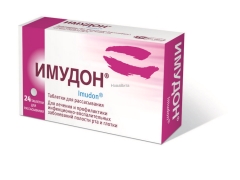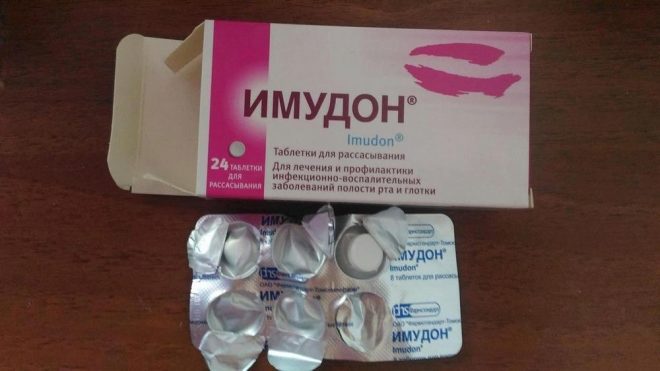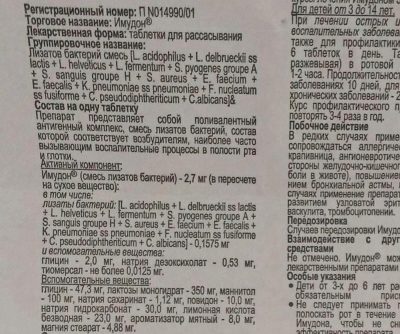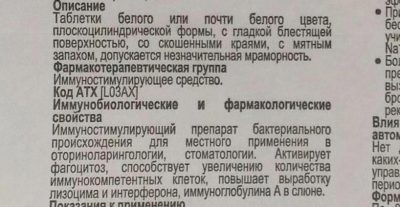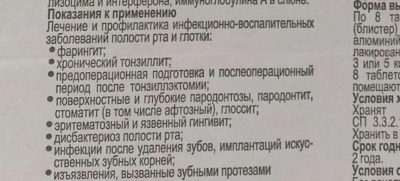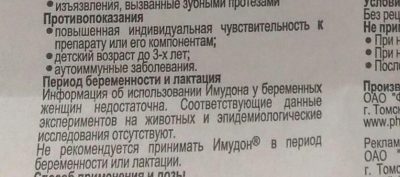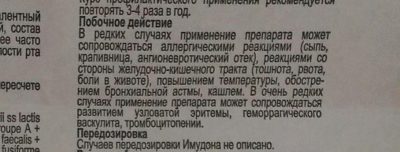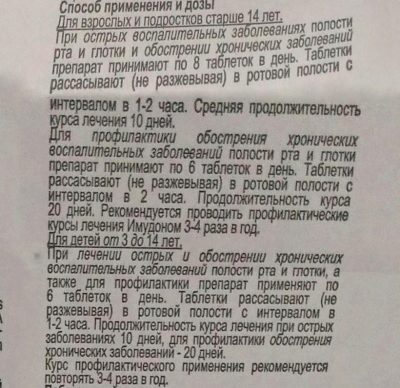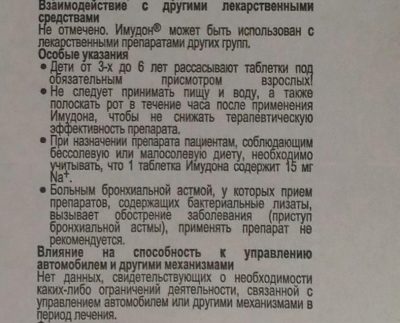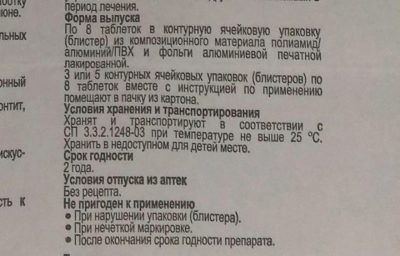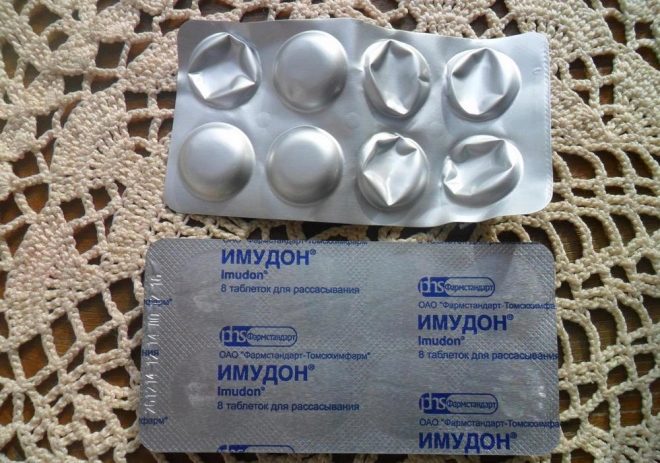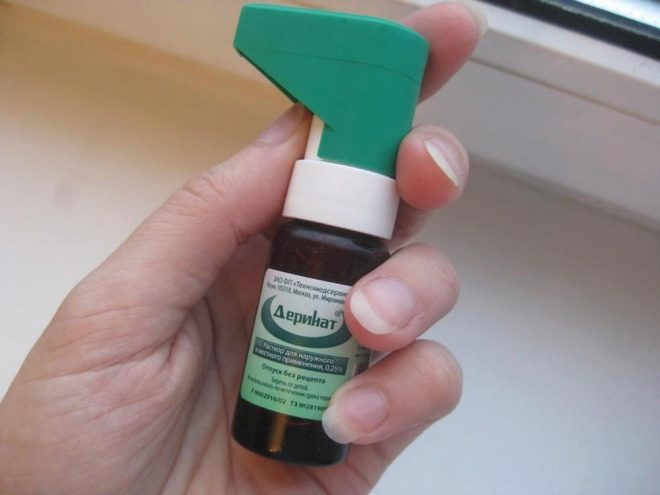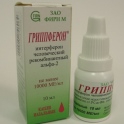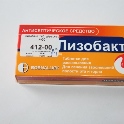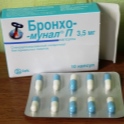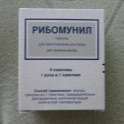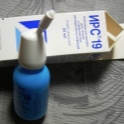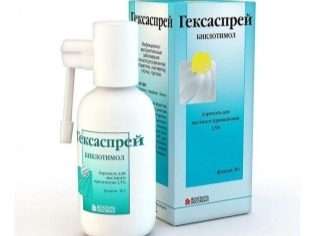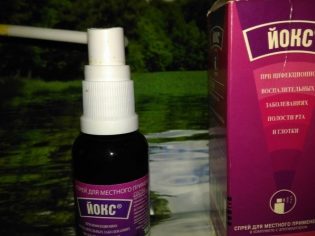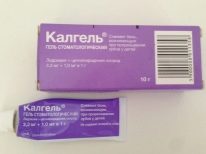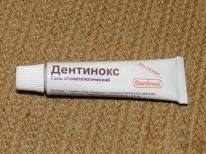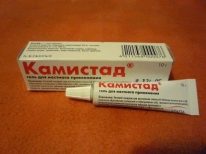Imudon for children: instructions for use
For stomatitis, tonsillitis and other diseases of the throat and oral cavity, local remedies are most in demand. One of them is Imudon. How does this drug affect children's body and is it allowed for children? Is it used for prophylaxis and how can it be replaced if necessary?
Release form
Imudon is produced in the form of tablets, which should be absorbed in the mouth. They have a white color (a slight marbling color is possible), a cylindrical flat shape, a smooth shiny surface and a mint flavor. One blister includes 8 tablets, and one pack contains 3 or 5 blisters.
Composition
The action of the tablets is provided by a complex of lysates of such microorganisms as streptococci, corynebacteria, enterococci, fusobacteria, lactobacilli, candida, klebsiella and Staphylococcus aureus. An addition to this active component is sodium deoxycholate, glycine, thiomersal, sodium saccharinate and lactose monohydrate. In addition, the drug contains magnesium stearate, citric acid, mannitol, povidone and sodium bicarbonate, and the smell of the tablets is provided with mint flavor.
Operating principle
Due to the presence of bacteria in Imudon, which often cause damage to the mucous membrane of the oropharynx, the drug has an immunostimulating effect. When resorption tablets lysates stimulate an increase in the number of cells of the immune system in the mucous membrane of the pharynx and mouth. In addition, under their action, the concentration of immunoglobulin A, interferon and lysozyme increases in saliva.
Indications
Imudon is especially in demand in the practice of ENT doctors and dentists.
Medication recommended:
- With pharyngitis.
- With angina.
- With different forms of gingivitis.
- When glossing.
- When dysbacteriosis of the oral cavity.
- With chronic tonsillitis.
- With stomatitis, including aphthous.
- With laryngitis.
- When paradont and any form of periodontal disease.
- Before tonsillectomy and in the postoperative period after such an intervention.
- With mucosal lesions caused by the removal of teeth or other dental procedures.
At what age is it allowed to take?
Imudon is prescribed for children over 3 years old. If the child is younger, it is better for him to pick up together with the doctor a medicine that is more suitable for age.
Contraindications
Tablets should not be used in case of individual hypersensitivity to any component of Imudon. In addition, the drug does not give to children with autoimmune pathologies.
Side effects
Imudon resorption in rare cases can provoke:
- Allergies in the form of a rash, Quincke's edema or urticaria.
- Negative gastrointestinal reaction, such as abdominal pain or nausea.
- Exacerbation of asthma.
- Increased body temperature.
- Cough.
- Thrombocytopenia.
- Hemorrhagic vasculitis.
The occurrence of any of these adverse reactions should cause the child to see the doctor.
Instructions for use and dosage
- The child is given a pill and offered to hold it in the mouth until the medicine is completely resolved. Chewing or swallowing the medicine is not recommended. If the child is less than 6 years old, he must remain in the field of view of the adult during resorption.
- Within 60 minutes after taking the medicine, it is not recommended to drink or eat anything. In addition, during this period, you should not perform a mouth rinse, otherwise it will affect the outcome of treatment.
- For children aged from 3 years to 14 years of age, both therapeutic and prophylactic daily dose of Imudon is 6 tablets. The medication is given in one tablet with an interval of one or two hours. If the agent is used to treat acute pathology, the duration of treatment is 10 days. If medication is given for chronic diseases to prevent exacerbations, the course usually lasts 20 days and is repeated several times a year.
- If a teenager at the age of 14 years or older has an acute illness of the oral cavity or chronic pathology aggravated, then the child is given 8 tablets of Imudon per day. They need to dissolve every 1-2 hours. The average duration of treatment is 10 days.
- For prophylactic purposes, children over 14 years old are prescribed a 20-day course of oral resorption with 1 tablet every two hours. The daily dosage of the drug - 6 tablets. Such courses are prescribed for chronic diseases up to 4 times a year to prevent their worsening.
Overdose
The fact that the drug in high dosage had a toxic effect has not been reported to date. However, to exceed the recommended number of tablets per day is not worth it.
Interaction with other drugs
Medicines from other groups can be used together with Imudon, for example, antibiotics or antipyretic drugs. No drug interaction tablets with other drugs are not marked.
Terms of sale
Acquisition of the drug in a pharmacy does not require a prescription. The cost of a pack of 24 tablets varies between 400-450 rubles, and the average price of a package with 40 tablets is about 600 rubles.
Storage conditions and shelf life
Storage space for tablets Imudon should be hidden from children and sunlight. The temperature during storage should not exceed 25 degrees Celsius. The shelf life of the drug is 2 years. If it has expired, the marking is fuzzy or the integrity of the blister is broken, the drug should be discarded.
Reviews
Doctors, among whom is Dr. Komarovsky, praise the drug for a good therapeutic effect and are often used in various diseases of the oral cavity. Parents in many reviews also emphasize that Imudon helped cure stomatitis, sore throat and other diseases more quickly.
According to moms, the drug helped eliminate pain and heal mucous membranes more quickly. At the same time, many children like the pill taste, but there are also opinions that it is too mint. As for the minuses of the drug, in most cases they are referred to its high cost, due to which many mothers are interested in cheaper analogues.
In addition, some reviews mention the ineffectiveness of the drug, but more often it is associated with a lack of understanding of how the medication works. Parents confuse immunomodulatory drugs with bactericidal, forgetting that lysates do not directly affect the causative agent of angina, stomatitis or another disease, but only strengthen the local immunity of babies and help them fight infection by themselves.
Analogs
If it is necessary to replace Imudon with a drug with a similar effect, most often it is prescribed:
- Broncho-munal P. The composition of such a drug in the form of capsules is also represented by lysates of several types of microorganisms. The drug is prescribed for acute respiratory viral infections and many other diseases. In pediatrics, it is used from the age of six months.
- Derinat. Such a medicine containing sodium deoxyribonucleate, stimulates the immune system of children and protects them from SARS or prevents infection. It is produced in drops and spray, and children are prescribed from birth.
- Lizobact. The basis of this drug is lysozyme, supplemented with pyridoxine.Such tablets are allowed for children over 3 years old and are often prescribed for aphthous stomatitis, erosions of the oral mucosa, tonsillitis, gingivitis and other pathologies.
- Ribomunil. The effect of such a drug in tablets or granules is due to the presence in its composition of the particles of the microbes that most often provoke sinusitis, rhinitis, otitis media, angina and other respiratory diseases. The drug is used in children older than 6 months.
- IRS-19. Such a spray also affects the local immunity due to the presence of bacteria in the lysates. Children it is prescribed from the age of three months with tonsillitis, rhinitis, and other pathologies.
- Grippferon. The stimulating effect of this drug in the form of drops or spray on the immune system is due to interferon, which is its active substance. The drug is in demand in the treatment of influenza and for the prevention of various acute respiratory viral infections. It is allowed to use from birth.
In addition, in case of inflammation of the oral mucosa and throat lesions, the doctor may recommend local antiseptic agents (Stomatidin, Yoks, Hexoral, Iodinol, Miramistin, Hexasprey and others.), painkillers (Kamistad, Ibufen, CalgelDentinox Panadol) and other medicines. However, it is important for parents to know that they are distinguished by their active substances and indications, therefore self-medication by such means is not recommended.
See the transfer of Dr. Komarovsky, in which situations of stomatitis and preventive measures against him are considered.
